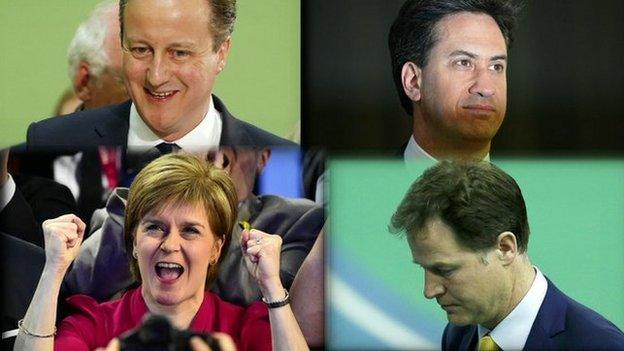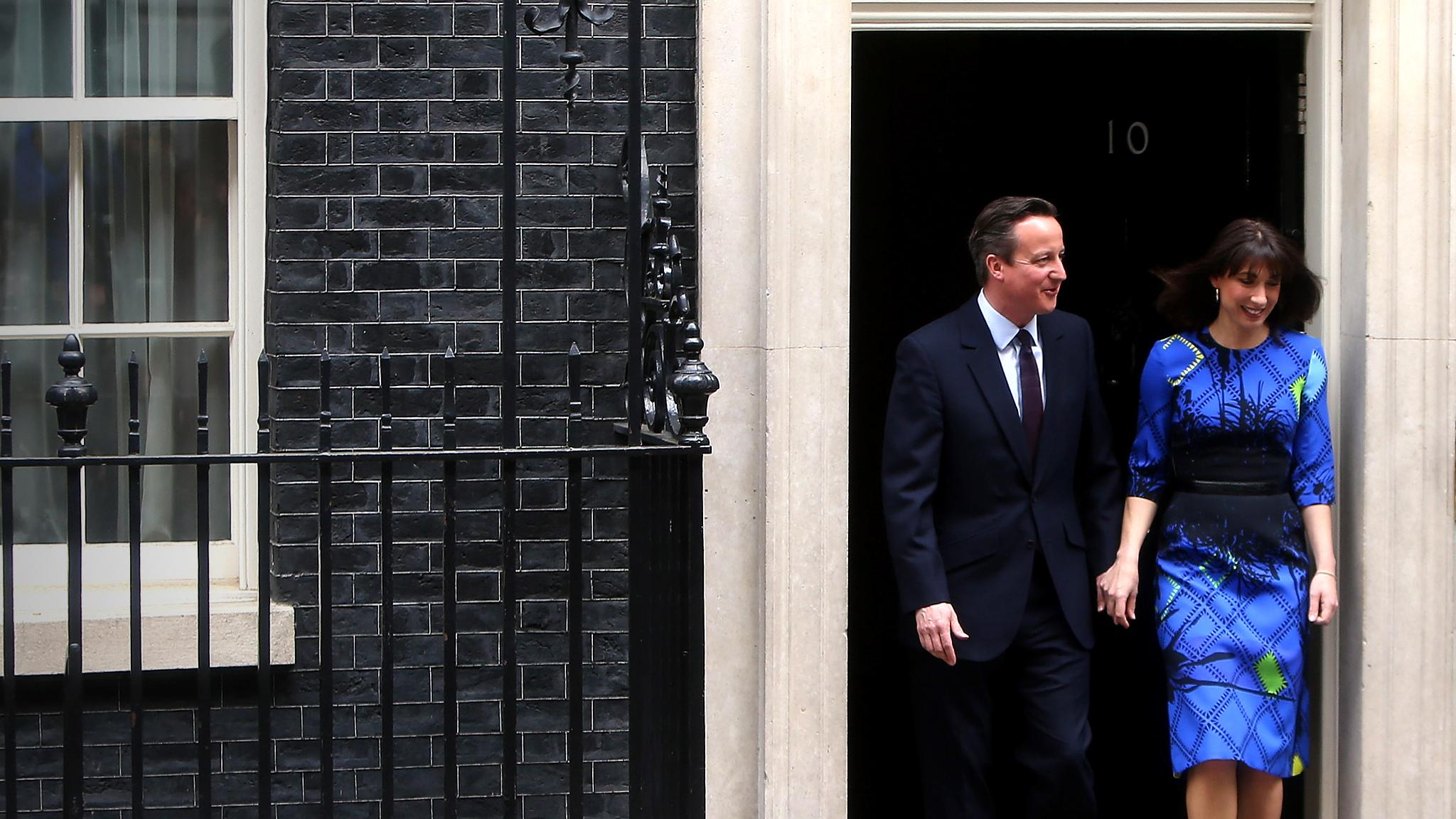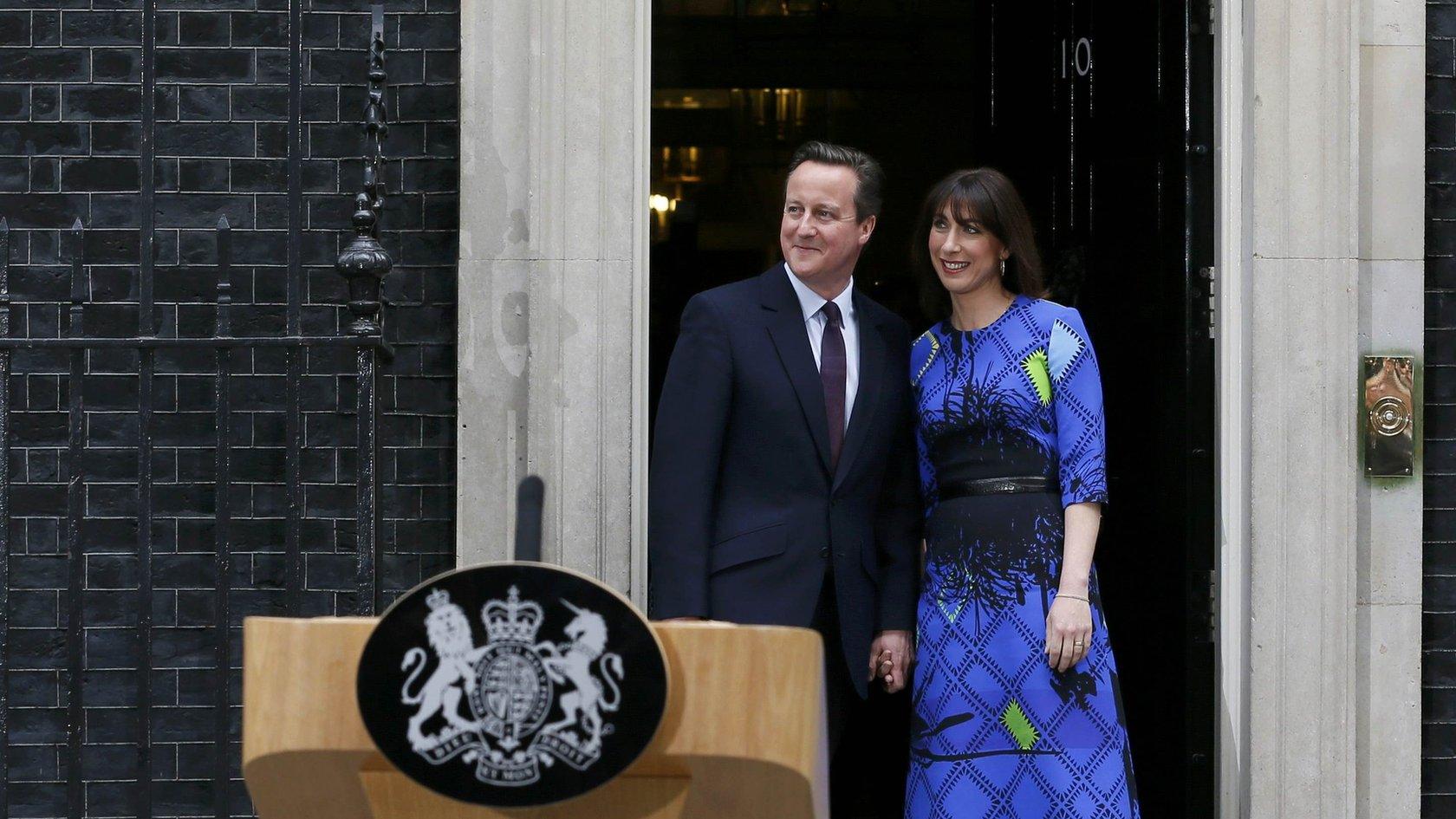Election results 2015: David Cameron's colossal achievement
- Published

This has been an election which may have more profound consequences than almost any in living memory.
We now face a generational decision about our future in Europe, with an EU referendum in two years' time almost certain.
There will also be serious questions about the future of the Union, following an SNP landslide that has turned Scotland into a virtual one-party state.
David Cameron's victory also represents a colossal achievement.
Only once before in recent history has an incumbent government increased its majority - and that was Mrs Thatcher in her prime in the 1980s.
It is also a significant personal victory for Mr Cameron and a rebuff for those in his party who had become increasingly sceptical about his ability to win.
But while it may represent a defeat for those Tories who saw this election as a potential opportunity to rid themselves of David Cameron, he must now govern with a wafer-thin majority.
What this means is his vulnerability to revolts and pressure from his own backbenches is now acute - opening up the possibility of a repeat of the draining experience of the Major years.
For Labour, this election could scarcely be more disastrous - crushed in Scotland, rebuffed in Middle England and stripped of some of its most significant figures, including the shadow chancellor Ed Balls and shadow foreign secretary Douglas Alexander.
Ed Miliband may have resigned - but this defeat presents Labour with a much more profound challenge.
The left-of-centre, traditional agenda set out by Ed Miliband would appear to have been decisively rejected.
So how does Labour re-discover its political purpose and how does it rebuild in its shattered heartland in Scotland?
It is an election which, for Labour, may prompt the sort of soul searching that accompanied other devastating defeats such as under Michael Foot in 1983 and Neil Kinnock in 1992.
Does it mean a return to the New Labour years or does Labour have to re-invent itself in a different way?
Similarly, the Liberal Democrats must now re-consider their whole political strategy.
Nick Clegg took the deliberate decision to try to re-position his party as a party of government, rather than a party of protest.
But the cost has been colossal.
Many Lib Dem supporters would appear never to have been reconciled to that alliance with the Conservatives; many too never forgave the party for that symbolic broken promise over tuition fees.
For the Lib Dems, the question now is whether they need now to return to their left-of-centre, radical roots.
Either way, they face a long slow haul to rebuild, not just at Westminster but in local councils and at their withered grass roots.
As for the smaller parties - once again the promised breakthrough has failed to materialise.
Our electoral system has again demonstrated its historic ability to crush the life out of the smaller parties.
For the SNP, their stunning victory can only increase the pressure on Nicola Sturgeon to include a commitment to a second independence referendum in her party's manifesto for next year's Scottish elections.
So far, Scotland's first minister has carefully avoided giving any such commitment.
However, it is hard to see how Ms Sturgeon will be able to hold her party back.
It means the future of the Union could yet again be on the agenda - despite the opinion of the party's former leader Alex Salmond that it was settled for a generation.
It is an election which has not just defied all the predictions of the pollsters and pundits - but which may yet prompt the most fundamental re-casting of British politics for a generation..
- Published8 May 2015

- Published5 May 2015
